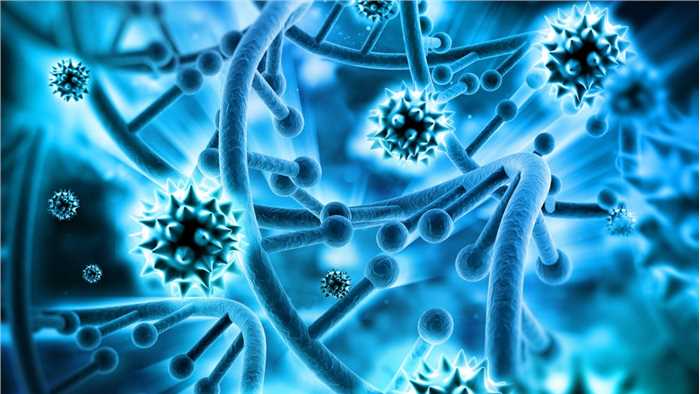DNA based Cancer Vaccine Development Services
Nucleic acid immunization has garnered much attention as a promising approach for cancer therapeutic development. This innovative vaccine strategy uses non-live, non-replicating, non-spreading DNA formulations which utilize the host’s cellular machinery for expression of proteins (antigens). Such novel delivered and expressed antigens become recognized by the host immune response and induce specific T and B cell responses against the gene encoded proteins. Creative Biolabs is a world leader in the field of cancer vaccine development. With our extensive experience and advanced platform, we are therefore confident in offering the best development services of DNA vaccines for cancer. We guarantee the finest results for our customers all over the world.
With recent DNA (deoxyribonucleic acid) research, scientists are finding ways to use the genetic code of proteins produced in cells to aid the immune systems fight against cancer. Bits of DNA from the patient's cells are injected into the patient, which instructs the other cells to continuously produce certain antigens. This DNA vaccine increases production of antigens, which forces the immune system to respond by producing more T cells.
The particular advantages of DNA in manufacturing, lack of replication-based pathogenesis, specificity for the tumor target, lack of vector immunity allowing for routine reimmunization are all properties of ideal immunization strategies for cancer immune therapies.

The generation of immune responses via DNA vaccines requires the delivery and/or presentation of immunogens to professional antigen presenting cells (APCs). The growing lists of TAAs provide copious targets to develop immunity against tumor formation. Several specific TAAs have become targets for DNA vaccine development, including:
- DNA Vaccines against Melanoma
- DNA Vaccines against Colon Cancer
- DNA Vaccines against Prostate Cancer
- DNA Vaccines against Cervical Cancer
- DNA Vaccines against Breast Cancer
Chimeric DNA Vaccine Design
Creative Biolabs provides chimeric DNA vaccine design services for our customers. Several studies have demonstrated that self-reactive antibodies are better induced by autologous rather than xenogeneic vaccination, reflecting the exquisite specificity for the cognate antigen of antibodies induced by DNA vaccines. One possible means by which to induce a combined potent cross-reactive T cell and antibody response is to use hybrid plasmids which code for chimeric proteins that include both xenogeneic and homologous oncoantigen domains. The potential efficacy of these plasmids relies on the presence of the homologous sequence which ensures the specificity of the immune response and the presence of the xenogeneic determinants which are instrumental in circumventing immune tolerance.
Adjuvant Optimization
Adjuvants are becoming critical components of most clinical vaccines and are used to enhance adaptive immune responses to antigen effecting both the quantity and quality of the immune response. The potency of DNA-based vaccines co-administered with molecular cytokine adjuvants as part of a vaccine cocktail has been demonstrated to boost the adaptive immune response. We are developing a range of adjuvants to increase the efficiency of DNA vaccines.
Currently, there are numerous cytokine adjuvants that are showing potential as DNA vaccine assistants for cancer therapies. Cytokine adjuvants are of particular interest as they have the ability to induce CD4+ and CD8+ T cell responses that are critical for an effective therapeutic immune response. Cytokines such as the interleukin family members IL-12, IL-15, and IL- 33 are all under investigation as potential adjuvants for use with DNA vaccines. Previously, IL-12 DNA was shown to act as a molecular adjuvant when optimized for high level of expression and delivered using in vivo EP.
DNA Delivery with Electroporation
The combination of adjuvants and an effective delivery method such as electroporation is overcoming past setbacks for naked plasmid DNA (pDNA) as a potential preventive or therapeutic approach to cancer in large animals and humans. EP has been shown to be an efficient method for enhancing the uptake and expression of DNA vaccine candidates, enabling the use of a lower dose of vaccine with similar or higher efficacy. Optimization of EP will also increase its acceptability as a delivery method by potentially reducing the associated pain with the procedure. In general, the delivery of DNA vaccines via either intramuscular, intratumoral, or intradermal EP has been proven to enhance antigen-specific antibody and cellular immunity compared to delivery to tissue alone.
Anti-cancer DNA Vaccine Encoding p62 Protein
P62 is a major player in selective autophagy, which interacts with GATA4 to inhibit GATA-4-associated senescence and senescence-associated secretory phenotype by degrading GATA4. Studies in p62 knockout mice suggest that P62 is required for tumorigenesis and progression, but is dispensable for normal tissues. Its high-level expression in tumor tissues indicates its promise in being a good cancer vaccine antigen. So developing and evaluating a DNA vaccine capable of encoding p62 may be an outstanding choice to conquer cancer.
VaxBody™ - A DNA Vaccine Encoding Antigens in Form of Antibody
The concept of the VaxBody™ stems from two basic facts that 1) An effective cancer vaccine relies on the selection of antigens that are recognized by high-affinity T cells and 2) Nucleic acid vaccine is a popular vaccine type for its strengths in fast, simple, and inexpensive production as well as no risks of inducing anti-vector immune responses. So-designed VaxBody™ is a DNA that encodes a human antibody with certain modifications in the gene sequences of the CDR region and Fc region of the antibody it encodes, endowing VaxBody™ with abilities to stimulate CD4 and CD8 T cell responses simultaneously and to bind to antigen-presenting cells such as DCs with high affinity. The latter capacity of VaxBody™ thereby enhances its antigen presentation.
Creative Biolabs is a leader in the field of vaccine development and has focused on the cancer vaccines for years. We have experienced experts and advanced platforms that are able to provide excellent services. If you are interested in our services, please contact us for more details.
All of our products can only be used for research purposes. These vaccine ingredients CANNOT be used directly on humans or animals.


